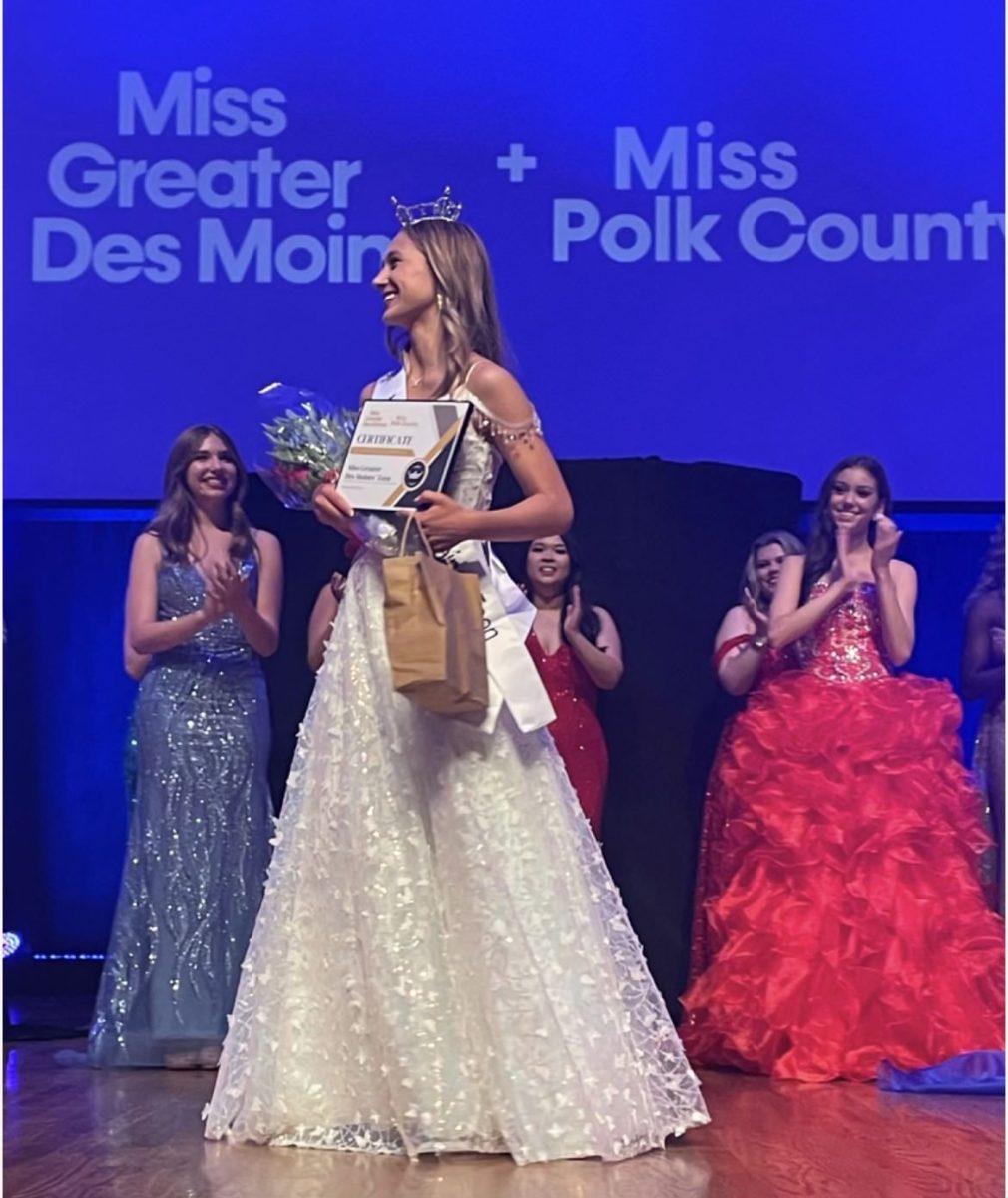Rhinestones, crazy moms, sparkles and hairspray are just a few of the stereotypes associated with beauty pageants. Competing to be the prettiest seems shallow and even downright misogynistic to many, but so much more goes into pageants than makeup and dresses.
Starting in 1921, beauty pageants once consisted of the judgment of women’s faces and bodies to declare a winner. The objectifying ordeal has given pageants a bad reputation. However, the many modern alterations to the system have resulted in an uplifting experience for many women.
Pageants transcend the title of a mere beauty contest. The talent, participation in charitable causes and composure of women are all taken into account during the judging of a contestant. Women are no longer being judged on their looks, but for their character. Those deemed as having the best character go on to inspire many other girls on how to fight for themselves and others.
Many pageant winners fiercely fight for women’s equality, aid for the less fortunate and participation in volunteer work. While some argue that women only do these things to win their pageant, it does not take away from the positive impact they have on the community.
Winner of Miss Greater Des Moines Iowa Teen Fiona Treiber reflected on her rewarding experience participating in pageants. “There is so much bad stigma around pageants but I can say with certainty that it is 100% not true. I have never felt a more welcoming environment than the one with the girls I compete with,” she conveyed.
“Pageants have helped me with public speaking, encouraged me to volunteer and has shown me what it means to support other women. I would not be the person I am today without Miss America’s Outstanding Teen,” Treiber continued.
A typical stereotype is the idea that pageants pit women against each other. In the media, many beauty competitions are depicted as a harsh atmosphere where women are at each other’s throats. The famous reality show “Toddlers in Tiaras” also depicts pageants to be a harmful environment for young girls. In the shows, the moms are depicted as vultures, willing to do anything to ensure their daughters are on top.
These stereotypes are harmful because they cause women to be perceived as catty or hysterical to win, resulting in the portrayal of pageants as a status building, shallow activity. Ill-informed misconceptions also cause pageants to lose their true intent of uplifting and empowering strong female leaders.
Senior Pratima Khatri is new to the pageant experience, but her opinion on the matter has not always been positive. “Originally, I also thought pageants were superficial and put women against each other, but I can confidently say that isn’t the case…though pageants are competitions, the women that do them are the most supportive and encouraging people,” she stated.
“All women that compete in pageants are required to make an impact on their community. Once someone wins a title, they then continue that community impact for their term…pageants are a great way of making a difference in the community and empowering women,” Khatri explained.
Although it has many benefits, participation in pageants also comes with intense pressure. Being judged and picked apart is an extremely vulnerable thing to be subjected to, and not many people can handle it.
Being able to manage and apply constructive criticism is an important life skill that is hard to obtain. Putting one’s pride aside to grow as a person is what pageants allow many women to do. When women learn this skill as teens it can be beneficial throughout their lives, positively impacting the way they carry themselves. Not everyone is perfect for the pageant life, but it has proven to be a positive impact to many despite its intense pressure.
Pageants are not perfect, but they are always evolving. Recently, the diversity of pageants has been increasing, allowing for more opportunities for women of color, women of third world countries, plus-sized women and many more. While certain toxicities of pageants are apparent, it is important to acknowledge the benefits as well.
The teens participating in pageants are future leaders consisting of women who all support and uplift each other. Many people only see the shallow parts of pageants, but these competitions involve so much more than just physical appearance. Being able to participate in the gathering of powerful women and fighting for positive change in the world is a good thing, and pageants give that opportunity to so many.









